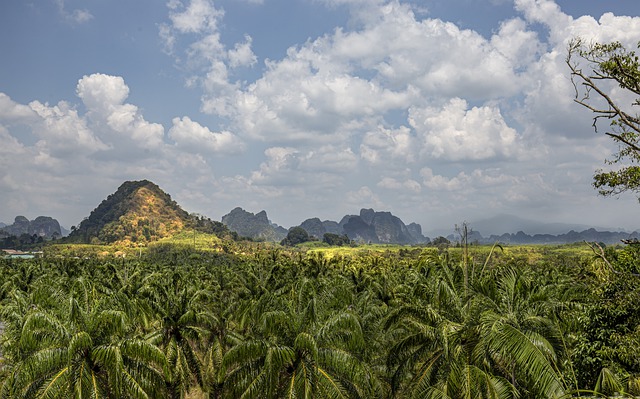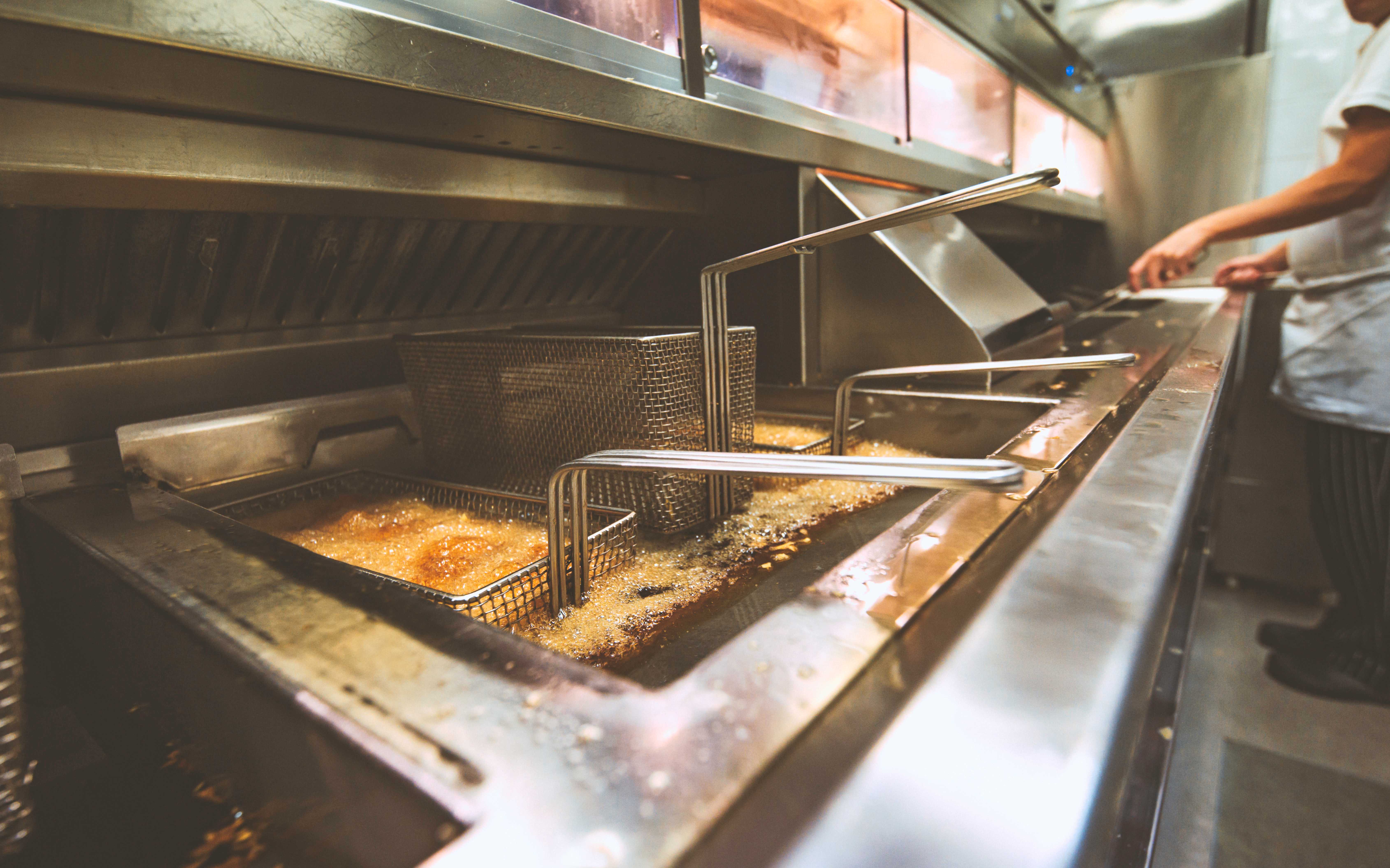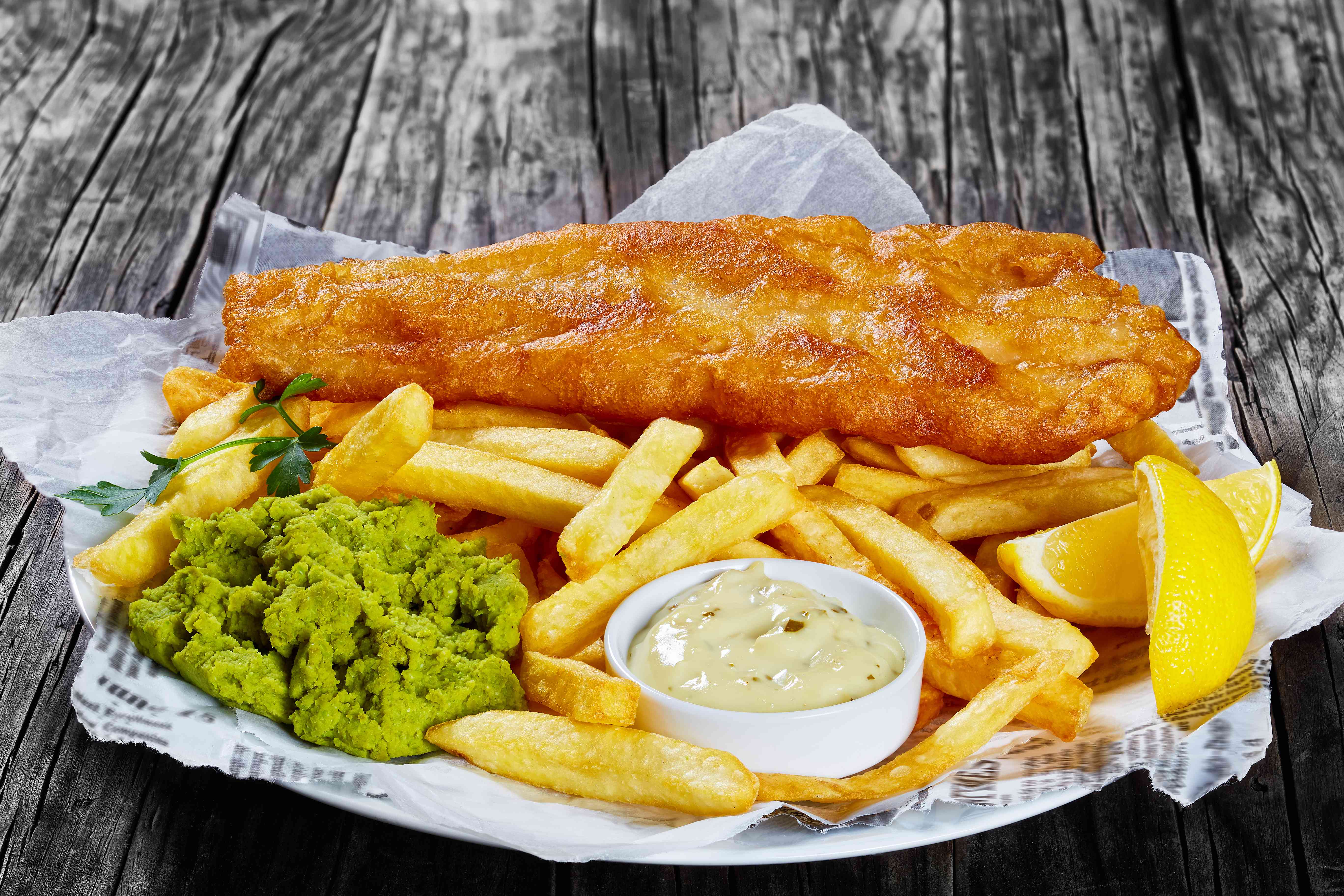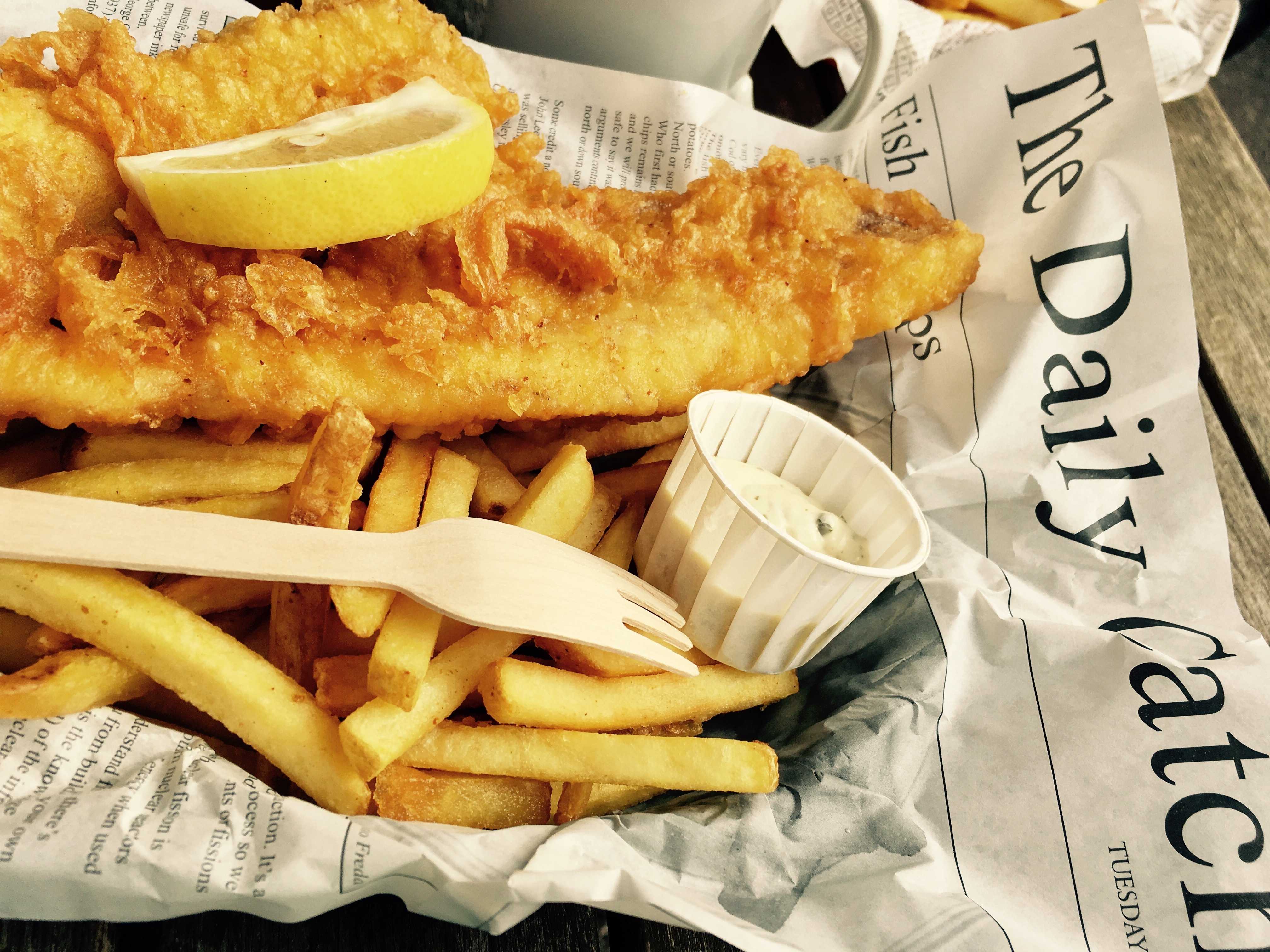Palm oil is the most widely used vegetable oil in the world. It is used to make a wide variety of popular foods and is also in widespread use as a cooking oil. In particular, it is the most popular choice for frying oil in British chip shops. While it is important to use oil that is additive-free and long-lasting, there is also another key criterion when selecting oil for large-scale commercial kitchens: sustainability. There is palm oil and then there is sustainable palm oil. Frymax prides itself on using only the latter. What makes palm oil sustainable?
How can palm oil be grown sustainably?
Palm oil is the most widely produced and consumed vegetable oil in the world! This versatile product originated in tropical countries where farmers and smallholders obtain their livelihoods from the cultivation of this crop. This allows to feed the massive global demand. Palm oil is used in so many everyday products that it can truly be said to be almost everywhere, from food items such as pizza and doughnuts, to toiletry items such as deodorant, shampoo and toothpaste. Pure, refined palm oil is used as a frying oil in millions of private and commercial kitchens all over the world. Major palm oil producers have adopted environmental and labour-conscious sourcing policies to ensure that the product is produced sustainably and ethically.
In the past, a list of issues raised by consumer and environmental advocates transformed the palm oil industry, rallying businesses to adjust their production processes and supply chains. The industry responded to these concerns and many suppliers transformed their practices to produce a natural commodity that is sustainable and free of exploitation. The world’s major producers of palm oil, with growers based chiefly in countries such as Malaysia, Indonesia, Thailand and Nigeria, have adopted policies that promise no deforestation, no peat development and no exploitation.
These policies are wide-ranging and cover the entire supply chain from plantation to kitchen, and include smallholders and third-party suppliers. Farmers are required to assess land carefully for high carbon stock and high conservation value before developing new plantations. Land may not be burned to clear it, and permission for the use of land must be obtained from local communities through a process called Free, Prior and Informed Consent.
These requirements are enforced through a certification system that all palm oil producers must fulfil in order to be recognised as legitimate. The system is managed by the Roundtable on Sustainable Palm Oil (RSPO). The RSPO was founded in 2004, bringing various players in the industry together to develop and implement standards for sustainability and fair labour practice. The stakeholders span the entire supply chain and include plantations, companies, processors and traders, consumer goods manufacturers, retailers and various civil society groups with an interest in the production of palm oil.
8 RSPO Principles
The RSPO established a set of eight principles and 40 criteria, to which palm oil producers must strictly adhere. The eight principles are as follows:
1. Commitment to transparency
2. Compliance with all applicable laws and regulations
3. Commitment to long-term economic and financial viability
4. Use of appropriate best practices by growers and millers
5. Environmental responsibility and conservation of natural resources and biodiversity
6. Responsible consideration of employees, and of individuals and communities affected by growers and mills
7. Responsible development of new planting
8. Commitment to continuous improvement in key areas of activity
One of the most important criteria in line with these principles is that no primary forests or areas of high biodiversity can be cleared to make way for palm oil plantations. Other stipulations include fair labour practices, consultations with local communities and the reduced use of pesticides and fires.
Compliance with these principles and their criteria is the key to sustainability in the palm oil sector. Organisations such as the World Wildlife Fund have endorsed the certification system. At the downstream of the supply chain, buyers and manufactures of the palm oil such as Frymax must ensure the integrity of the certified oil used, and guarantee that palm oil sold as sustainable palm oil has indeed been produced by certified plantations.
How do palm oil growers, mills and distributors get RSPO certification?
Palm oil growers, as well as companies that refine, process and transform the oil before taking it to global markets, are all required to attain RSPO certification. RSPO auditors assess and certify plantations that supply fresh fruit bunches (FFBs) to mills. They then oversee the process that mills use in extracting oil from the FFBs, as well as the manner in which transporters and refiners then handle the oil in carrying it from mill to wholesale or retail shelves.
Types of certification
RSPO assessments, and the extent to which different companies perform in these assessments, results in the division of the product into four different certified types:
- Identity-preserved palm oil (IP):This refers to batches of palm oil that all can be traced to a single source, kept physically separate from the products of other growers throughout the refining and transport process. This certification guarantees that the end-user can trace every unit purchased back to a single certified grower.
- Segregated (SG): In this case, FFBs from multiple plantations are mixed at the mill. The oil that is produced is kept physically separate from that point on throughout the supply chain. The products can be traced back to a single mill, not to a single plantation.
- Mass Balanced (MB): Mills with this certification source their FFBs from a mix of certified and non-certified plantations. The oil produced can thus not be traced back to any particular plantation, although the mill keeps track of the proportions of certified and non-certified FFBs used in its production processes.
- Book & Claim (B&C): The B&C certification allows producers to use uncertified palm oil if they choose, but requires them to purchase RSPO credits in an online marketplace. The funds enable the producers to claim sustainability credentials while giving support to sustainable farmers and those who are seeking to make their products and processes more sustainable.
Who produces sustainable palm oil?
As the situation currently stands, about 12.07 million tons of sustainable palm oil is produced annually. Even this amounts to only a relatively small part of the global sector – somewhere between 20 and 30 per cent of the world’s total palm oil supply. Thankfully, more producers are joining the RSPO and adopting its policies.
Major global oil supply corporations such as Olenex and ADM (both of whom are producers of Frymax oils) are proud members of the RSPO and are committed supporters of the global sustainability movement. They rank among the current 69-strong membership of the RSPO. With end-users growing increasingly conscious and selective about where their palm oil comes from, more and more producers are moving towards the RSPO and its standards. Buyers, from large-scale food manufacturers to high street chip shops and private homeowners, are increasingly insistent in their demand for fully-certified, sustainable palm oil. Producers are responding to this demand and doing what is needed to transform their production processes.
The roundtable and its stakeholders are putting a great deal of effort into supporting smallholders. Farmers who run small, private plantations often lack the resources needed to adopt the responsible practices promoted by the RSPO. However, it is also true that RSPO certification is an important tool to help these farmers to improve their yields and incomes through more efficient production and access to new markets. The RSPO promotes the improvement of smallholder farming by placing 10% of the profits from CSPO certification into a development fund that can support smallholder certification projects and audits around the world.
Is Frymax oil RSPO-certified?
As the UK’s largest supplier of frying oil to fish and chip shops and other food outlets and restaurants, Frymax is committed to upholding and embodying all the principles of the RSPO. Since 2013, Frymax oil has been made from fully-segregated, RSPO-certified palm fruit oil. Not a drop of non-certified oil goes into the production of Frymax. Home cooks and restaurateurs can rest assured that, when they choose Frymax, they are supporting sustainable, ethical palm oil production.
Frymax has been the UK’s number one choice in high-quality frying oil since 1954. In that time, the quality of ingredients used in Frymax has never changed, even as our commitment to sustainability has deepened over the years. We remain committed to supplying trans-fat-free, certified palm oil, sourced from suppliers that are just as committed to the RSPO’s principles as we are. For more information don’t hesitate to get in contact with the helpful Frymax team.






